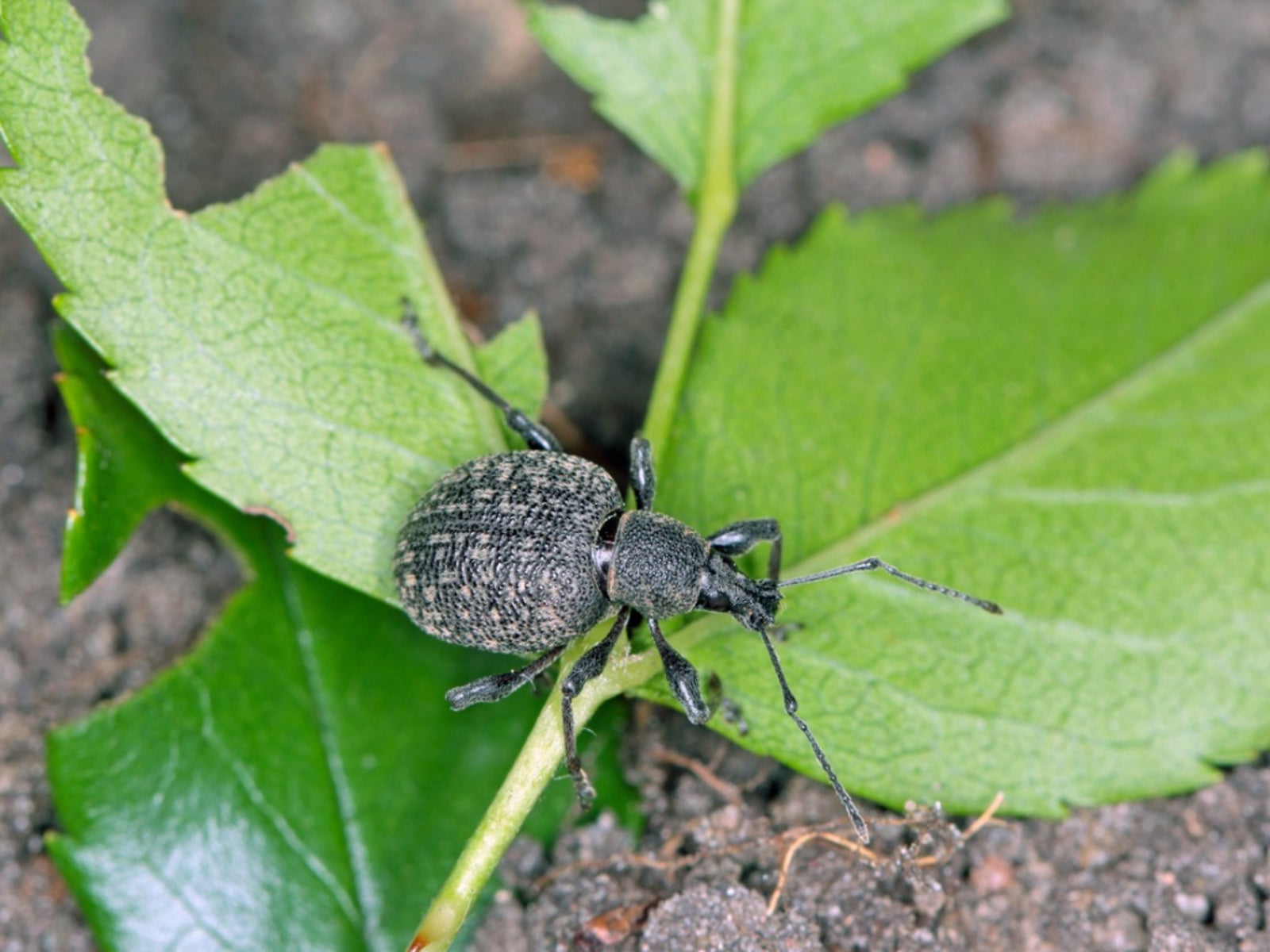Identifying And Controlling Root Weevil


Root weevils are a plant pest both indoors and outdoors. These destructive little insects will invade the root system of a healthy plant and then proceed to eat the plant from the roots up. Identifying and controlling root weevil in your garden and houseplants can keep your plants from suffering unnecessary damage.
Identifying Root Weevils
Root weevils can be one of several kinds. The most common in the garden is the black vine root weevil or the strawberry root weevil. The black vine weevil attacks shrubs and strawberry weevils attack strawberries. While these are the most common, they are far from the only kind. All plants in your home or garden are susceptible to weevil infestation. Larval root weevils will look like white grubs or worms and will be found in the soil. Adult weevils are beetle-like insects that can be black, brown, or gray. If root weevils are present in your garden or houseplants, there will be damage to both the roots and the leaves. The leaves of the plant will be irregular, as though someone has been taking bites out of the edges. This damage will appear in the night, as root weevils come out to feed at night.
Root Weevil Control
Controlling root weevil is possible. Organic root weevil control methods include purchasing parasitic nematodes or predatory beetles, which can be bought to hunt down the weevils. You can also hand pick the adults off the plant at night while they are eating. Weevils are also attracted to moisture, so a shallow pan of water can be set out at night and the weevils will climb into it and drown. Non-organic root weevil control methods are to spray the leaves of the plant with a pesticide and to thoroughly soak the soil with a liquid pesticide. Remember, when you do this, you may also be killing off beneficial insects and small animals as well. Finding these insects in the roots and leaves of your plants is unpleasant, but it can be fixed. As always, the best root weevil control is to make sure you never get any in the first place. Be sure to practice good garden hygiene and clean up dead plants and do not over mulch.
Sign up for the Gardening Know How newsletter today and receive a free copy of our e-book "How to Grow Delicious Tomatoes".

Heather Rhoades founded Gardening Know How in 2007. She holds degrees from Cleveland State University and Northern Kentucky University. She is an avid gardener with a passion for community, and is a recipient of the Master Gardeners of Ohio Lifetime Achievement Award.